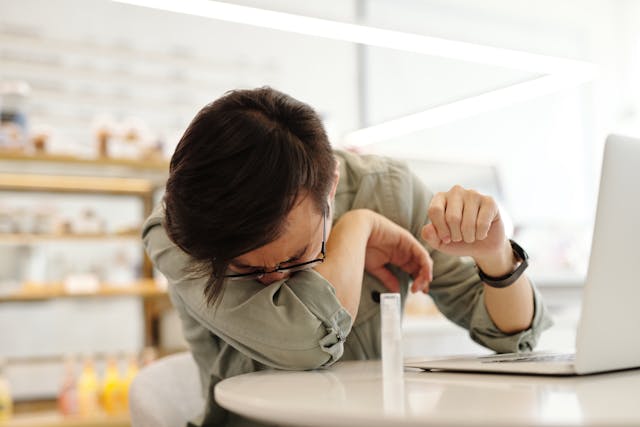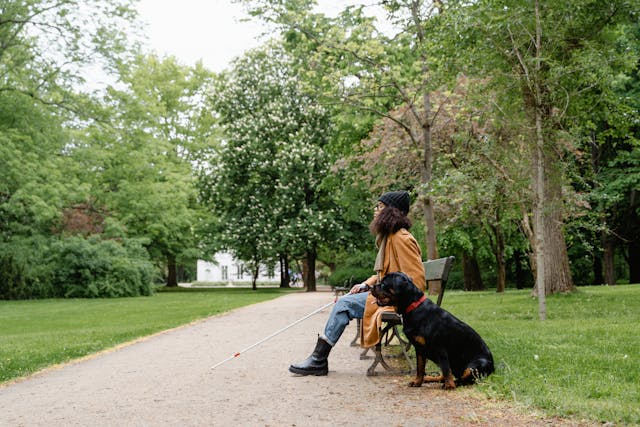Call Today to Schedule an Appointment: 212-319-5282
Sinusitis: Causes, Symptoms, and Treatment Options
In this guide, we’ll explain the causes, symptoms, and most effective treatment options for sinusitis, helping you find lasting relief. Sinusitis is a common yet often misunderstood condition that affects millions of people each year. It can lead to persistent nasal congestion, headaches, facial pressure, and even difficulty breathing. For residents of New York City, sinusitis can be particularly challenging due to environmental pollutants, allergens, and seasonal weather changes.

What Is Sinusitis?
Sinusitis, or a sinus infection, occurs when the tissues lining the sinuses become inflamed. This inflammation can cause blockages, leading to mucus buildup, bacterial growth, and uncomfortable symptoms.
Sinusitis can be classified into different types based on duration:
- Acute Sinusitis: Symptoms last less than four weeks, often caused by viral infections like the common cold.
- Chronic Sinusitis: Symptoms persist for more than 12 weeks and are often linked to allergies, nasal polyps, or structural abnormalities.
- Recurrent Sinusitis: Multiple episodes of sinusitis occur throughout the year, often indicating an underlying immune or allergy-related issue.
What Causes Sinusitis?
Several factors can contribute to sinusitis, including:
- Viral Infections: The most common cause, typically following a cold or flu.
- Bacterial Infections: When sinus blockages persist, bacteria can grow, leading to bacterial sinusitis.
- Allergies: Seasonal allergies can cause nasal inflammation, increasing the risk of sinus infections.
- Environmental Irritants: NYC air pollution, cigarette smoke, and strong odors can trigger sinus inflammation.
- Nasal Polyps: Growths in the nasal passages that obstruct proper sinus drainage.
- Deviated Septum: A structural issue that affects airflow and mucus drainage.
Symptoms of Sinusitis
Sinusitis symptoms can vary in severity but commonly include:
- Persistent nasal congestion or stuffiness
- Facial pain or pressure, especially around the forehead, cheeks, and eyes
- Thick nasal discharge (yellow or green in color)
- Postnasal drip (mucus dripping down the throat)
- Headache, particularly in the morning
- Bad breath or loss of smell
- Coughing that worsens at night
- Fatigue due to poor sleep caused by congestion
If symptoms persist for more than 10 days, or if they worsen after initially improving, it may indicate bacterial sinusitis, which could require medical treatment.
Effective Treatment Options for Sinusitis
Dr. Sneeze provides a range of effective treatments for sinusitis, based on the severity and underlying causes of your condition:
1. Medications for Symptom Relief
- Nasal Decongestants: Help reduce nasal swelling and improve drainage.
- Antihistamines: Useful if allergies are a contributing factor.
- Nasal Corticosteroids: Reduce inflammation in the nasal passages.
- Antibiotics: Prescribed only for bacterial sinus infections that don’t resolve on their own.
2. Allergy Treatment for Sinus Relief
If allergies are triggering or worsening your sinusitis, Dr. Sneeze may recommend:
Allergy Testing: Identifies specific allergens contributing to sinus issues.
- Immunotherapy (Allergy Shots): Helps reduce sensitivity to allergens over time.
- Lifestyle Modifications: Recommendations for reducing allergen exposure in your home and workplace.
3. Advanced Sinus Treatments
For chronic or severe cases, additional treatments may be necessary:
- Saline Nasal Irrigation: Rinses away irritants and mucus buildup using a neti pot or saline spray.
- Balloon Sinuplasty: A minimally invasive procedure that opens blocked sinuses for better drainage.
- Surgical Intervention: In rare cases, surgery may be required to remove nasal polyps or correct a deviated septum.
Preventive Measures to Reduce Sinus Infections
Taking steps to prevent sinusitis can reduce the frequency and severity of symptoms. Top allergists in NYC recommend:
- Using a humidifier to keep nasal passages moist during dry winter months.
- Avoiding cigarette smoke and air pollution whenever possible.
- Staying hydrated to help thin mucus and promote proper drainage.
- Practicing good hand hygiene to prevent colds and viral infections.
- Managing allergies effectively to reduce nasal inflammation.

When to See an Allergist for Sinus Issues
If you suffer from frequent sinus infections, persistent nasal congestion, or sinus headaches, seeing an allergist can help identify the underlying causes and provide targeted treatment. A experienced and qualified allergist will offer:
- Comprehensive sinus and allergy testing.
- Personalized treatment plans for lasting relief.
- Minimally invasive procedures to improve sinus drainage.
Sinusitis: Causes, Symptoms, and Treatment Options
: Contact NYC’s Leading Sinus and Allergy Specialist
Don’t let sinusitis disrupt your life. With expert care, you can breathe easier and prevent recurring infections. Dr. Boyan Hadjiev, MD, “Dr. Sneeze,” is dedicated to helping NYC residents find long-term relief from sinus issues. Schedule an appointment today:
Allergy, Asthma and Sinusitis P.C
Boyan Hadjiev, MD
30 East 40th Street
Suite 1200
New York, NY 10016
212-319-5282
Take control of your sinus health with the expertise of NYC’s leading allergist. Book your appointment today and start feeling better!
Serving all of New York City and the Tri State Area including Zip Codes: Top Allergist NYC Midtown, Chelsea and Clinton: 10001, 10011, 10018, 10019, 10020, 10036 | Gramercy Park and Murray Hill: 10010, 10016, 10017, 10022 | Greenwich Village and Soho: 10012, 10013, 10014 | Lower Manhattan: 10004, 10005, 10006, 10007, 10038, 10280 | Lower East Side: 10002, 10003, 10009 | Upper East Side: 10021, 10028, 10044, 10128 | Upper West Side: 10023, 10024, 10025
